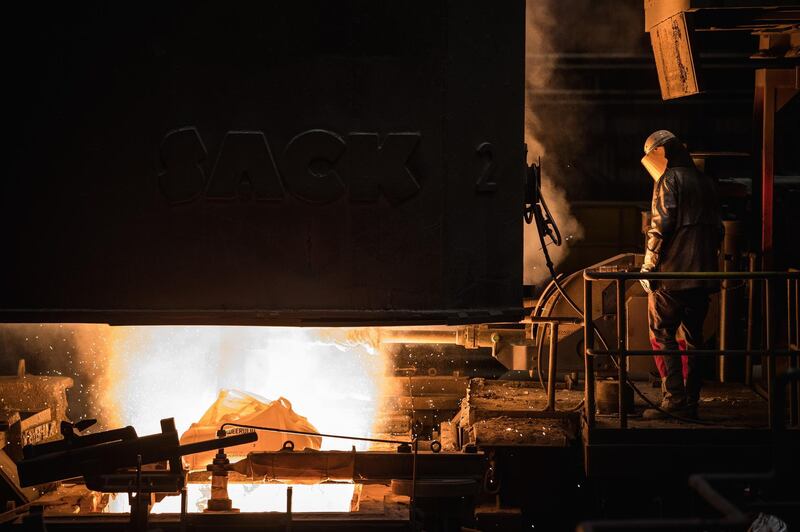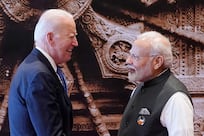The most consistent trait of the US President Donald Trump, throughout his term in the White House, has been his unpredictability. But his announcement on Thursday that he was going to institute tariffs on steel and aluminium imports into the US shocked even his closest advisers. Many were opposed to the idea of triggering a global trade war with new tariffs; few, it appears, were aware that their boss was considering them and hardly anyone, it seems, knew that he was poised to go public with the proposal. Mr Trump's anti-globalist measures are clearly a move to placate his diehard supporters in the Rust Belt in the northeast but are unlikely to harm Beijing – the focus of his ire when it comes to trade – which is not even among the top 10 exporters of steel to the US. Instead, the victims of his new policy will be Washington's partners such as Canada and Brazil – from whose markets the US sources the bulk of its steel and aluminium imports – as well as American consumers and workers. Consider that when the president introduced tariffs on imported washing machines in January, LG reacted by raising the prices of its washing machines. It was, ultimately, the consumer who suffered.
In 2002, when then president George W Bush tried to introduce tariffs on steel, the move killed off about 200,000 jobs in the sector and the levies were dropped after 20 months. Mr Bush's tariffs, despite being bespoke (Canada and Mexico were exempt), caused havoc. What will be the consequence of Mr Trump's sweeping tariffs? The answer, from the International Monetary Fund to Canada and the European Union as well as among lawmakers in Mr Trump's own party, is unanimous: catastrophic. The IMF predicts that the tariffs will do "damage not only outside the US but also to the US economy itself". As the EU prepares to retaliate with tariffs on imports from the US, a market as lucrative as Europe is suddenly about to become an unwelcome place for American businesses. Canada, which is the largest exporter of steel to the US, is likely to follow the EU. Mr Trump would do well to remember that it was Canadian tariffs introduced in response to similar protectionist measures by the US government in the 1930s that aggravated the Great Depression.
The national interest rationale invoked by Mr Trump is available to other nations too and they are already deploying it. These tariffs are creating a ripple effect that could affect the GCC, which accounts for 20 per cent of global aluminium production. The UAE alone produced a record 2.1 million tonnes of aluminium last year and supplied it to more than 60 countries. Bahrain is building the world's largest aluminium smelter and Saudi Arabia last year forged a partnership with a US firm to increase its aluminium output. Disruptive barriers to trade is the last thing the world needs as it seeks to emerge fully from the economic crisis of the last decade. As Roberto Azevedo, chairman of the World Trade Organisation, said: "A trade war is in no one's interests." Least of all America's.





